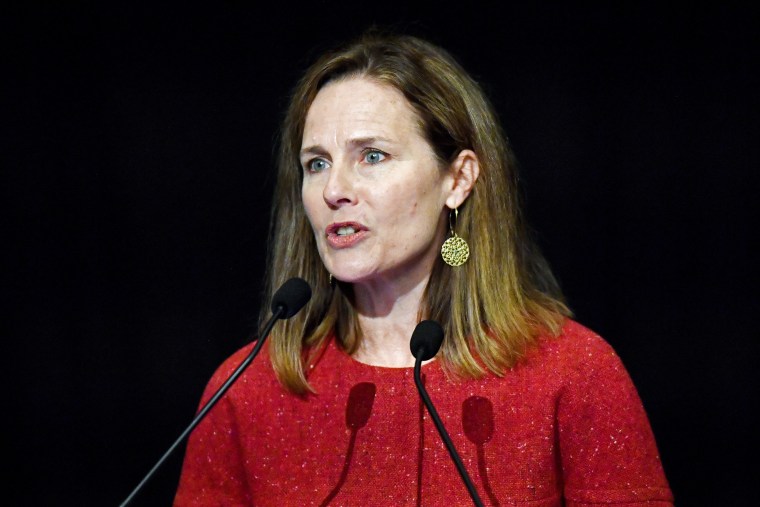Supreme Court Justice Amy Coney Barrett said it would be a “good idea” for the court to have an ethics code. She’s correct, but her stated support for this bare minimum action reinforces that the court hasn’t taken it.
The Donald Trump appointee made these ethically supportive remarks Monday at a law school, following Justice Elena Kagan’s similar comments last month at a law school appearance of her own. Chief Justice John Roberts and Justice Brett Kavanaugh have also suggested they understand it’s an issue that needs addressing, after a series of reported ethical lapses by their colleagues Clarence Thomas and Samuel Alito.
“There is no lack of consensus among the justices," Barrett told the University of Minnesota Law School audience. "There’s unanimity among all nine justices that we should and do hold ourselves to the highest ethical standards possible." But she wouldn't say why the court hasn't yet adopted a code.

As things stand now, lower federal court judges are bound by a code, while the justices who decide the law that lower court judges (and the rest of us) are supposed to follow aren’t. It’s true, as Kagan noted last month, that the justices’ unique role atop the legal pyramid means they wouldn’t want to simply adopt the same code as lower court judges. Recusal, for example, can pose different issues for the nine-member bench than, say, a trial court judge who could more easily be replaced by another judge in the same district.
But these issues aren't new, and they’ve only become more pressing with each passing Thomas-related ethics revelation.
Democrats have pushed legislation to tackle the code issue, among other things. A bill squeaked through the Democratic-led Senate Judiciary Committee earlier this year on a party-line vote, and the justices probably aren’t too worried about it becoming law. Republicans hold a slim majority in the House, which doesn’t even have a speaker at the moment.
Practically, then, that leaves it up to the court, and whether all its justices think having an ethics code is a “good idea.” And that’s just the general fact of having a code. What it would contain — and how it would be enforced — remain to be seen. But, as Barrett’s words serve to remind us, we’re not even there yet.
Subscribe to the Deadline: Legal Blog newsletter for weekly updates on the top legal stories, including news from the Supreme Court, the Donald Trump cases and more.
